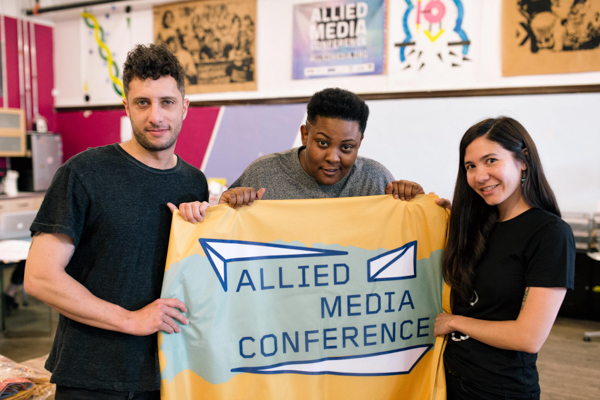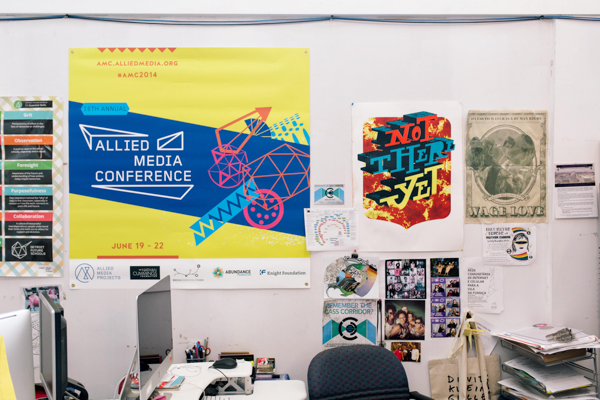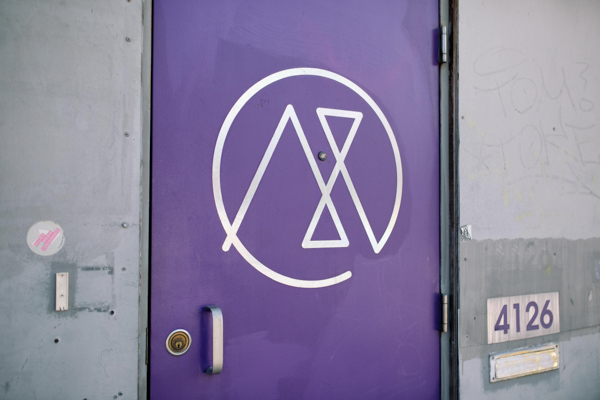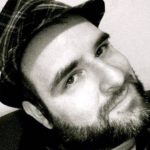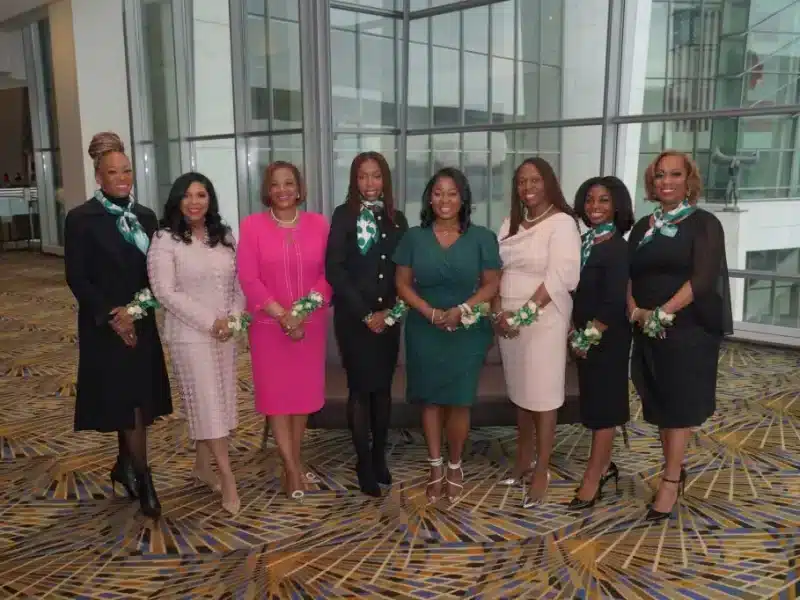Becoming the media: Allied Media Conference celebrates 10 years in Detroit
This year marks an important milestone for Allied Media Conference, a nationally-significant conference that that utilizes media and technology to advance social justice. 10 years ago, AMC relocated to Detroit, a move that ushered in significant changes.
For bloggers, zine makers, indie radio broadcasters and countless other activists and DIY media folks from all over the country, the Allied Media Conference (AMC) has become something of a summer pilgrimage. According to organizers, it’s the only U.S. conference expressly dedicated to using art, media and technology to advance social justice and social change.
This year’s conference, which takes place June 16 through 19 on Wayne State University’s campus, will offer more than 300 events, including panels and hands-on workshops covering topics as varied as “Black Digital Activism On Campus,” “A Revolutionary Mothering Zine Workshop” and “Community Approaches to Environmental Justice and Human Rights.” Attendees will also have opportunities to get creative in open studios called “practice spaces,” meet up in special side-gatherings, and enjoy activities like film screenings, bike tours, arts and music events, karaoke, bowling and collaborative art-making.
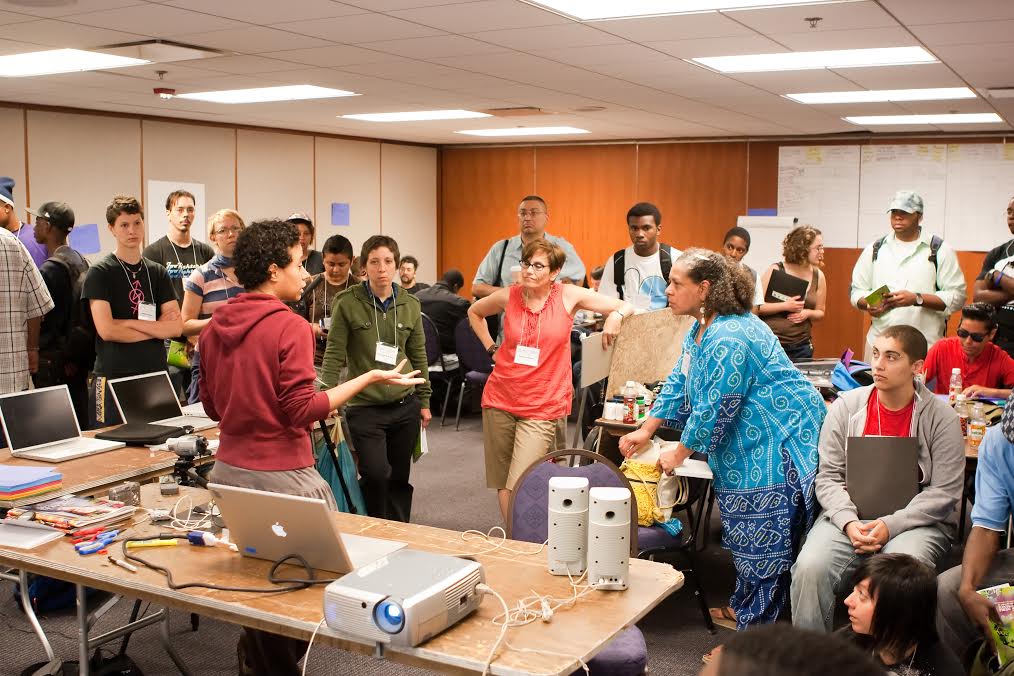
This year also marks an important milestone for AMC: 10 years ago it relocated to Detroit, a move that ushered in significant changes. For one, the conference has more than quadrupled in size, growing from a respectable 600 people in 2007 to over 2,500 in 2015. Local attendance has been surprisingly solid, with 35 percent of all attendees coming from Detroit.
The conference has developed a rather diverse following, too. Accessibility for a wide range of attendees—parents, gender nonconformists, people with disabilities—is a priority for organizers. Last year, 56 percent of participants identified as persons of color, 31 percent as low-income, 10 percent as immigrants, and 18 percent as youth. There’s also a strong LGBTQ presence.
As for the programming, there’s been a decisive embrace of new technologies. This year’s conference, for example, includes sessions on podcasting, open data tools, community radio and social justice video games.
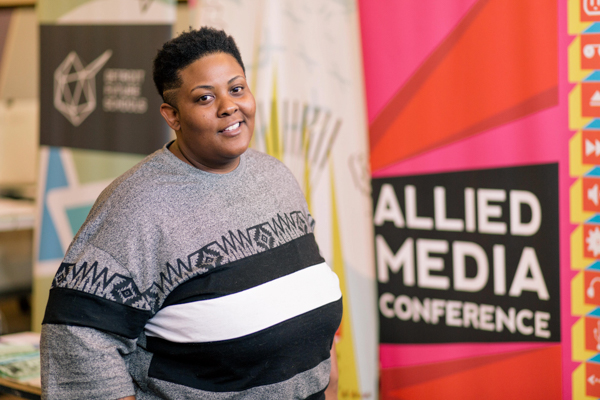
“What you see are folks who are really taking it to the next level, who are exploring how to use new forms of media, and how to share that with each other,” says Allied Media Projects program director Morgan Willis.
Taken as a whole, it’s quite a sea change from the AMC’s modest beginnings in the college town of Bowling Green, Ohio. The gathering started its life there in 1999 as the Midwest Zine Conference. Back in those days, paper media was the primary focus, and the conference’s audience was, for the most part, drawn from a predominantly white community of anarchists and punk rockers.
Detroiters Jenny Lee and Mike Medow now work with the AMC’s parent organization, Allied Media Projects (AMP)—as executive director and chief operating officer, respectively—but they got their start organizing the conference during its final year in Bowling Green.
By that time, the gathering was becoming slightly more diverse thanks to the involvement of youth organizations like Detroit Summer, a multiracial community improvement group to which they both belonged. In an effort to find an urban environment more suited to the changing nature of the conference, organizers put out a call to Midwest cities to find a new home.
They were encouraged by the response they got from Detroit. “We had conversations with community organizers in Detroit and asked if this conference would be an asset for the community,” says Medow. “We were challenged to try bring it here and make it something useful for locals.”
With “Breaking Silence, Building Movements” as its theme, Detroit held its first AMC on the grounds of Wayne State from June 22-24, 2007.
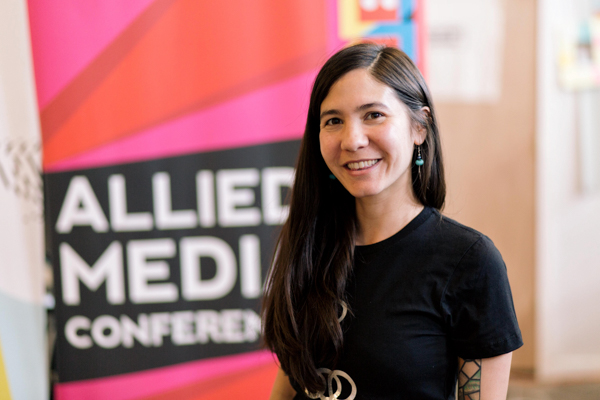
“[Philosopher and activist] Grace Lee Boggs spoke at the closing ceremony, and really put Detroit on a lot of people’s mental maps as a place that was deeply significant in terms of social movement history and contemporary social movement struggles,” Lee remembers. “There was a palpable excitement, particularly about the grassroots organizing that was
happening.”
Much of the AMC’s success can no doubt be attributed to its decentralized organizing model. The conference’s programming is put together by a team of around 110 coordinators, half of whom are based in Detroit. Their proposals are in turn reviewed by a nine-person advisory board.
“It’s super well organized,” says Shane Bernardo, a local activist and urban farmer who’s been participating in the conference since 2008. “They work on the conference all-year long and have a great advisory board, people who have been coming to the conference as participants and organizers. All that wealth of knowledge is being reinvested into the conference every year.”
The AMC’s organizers view their conference as a vehicle to offer supportive infrastructure for other projects. It’s a movement-growing approach that has certainly borne fruit, locally and beyond.
Here, it spurred the formation of the Detroit Digital Justice Coalition (DDJC), a group dedicated to bridging the digital divide. Partnering with AMP in 2011, DDJC applied for and were awarded federal funds that allowed them to offer three years of programing to train thousands of Detroiters in media production skills. Other local projects inspired by the AMC include the Detroit Community Technology Project, which has dedicated itself to building community wireless mesh networks in the city; and Detroit Represent, an LGBTQ youth of color organization that uses media to build community and challenge misrepresentations.
Nationally, the AMC has served as a convergence point for different activists to connect. Building off its experiences at the gathering, Streetwise and Safe, an NYC-based group concerned with police violence against LGBTQ youth, launched a National Know Your Rights Network. Thousand Kites, a radio show in Appalachia, has used AMC as a platform to link up with others interested in opposing excessive prison phone call costs.
Policies, school curricula, even software platforms have all evolved out of the conference, according to Medow. Though he feels the community it’s created remains the most important product.
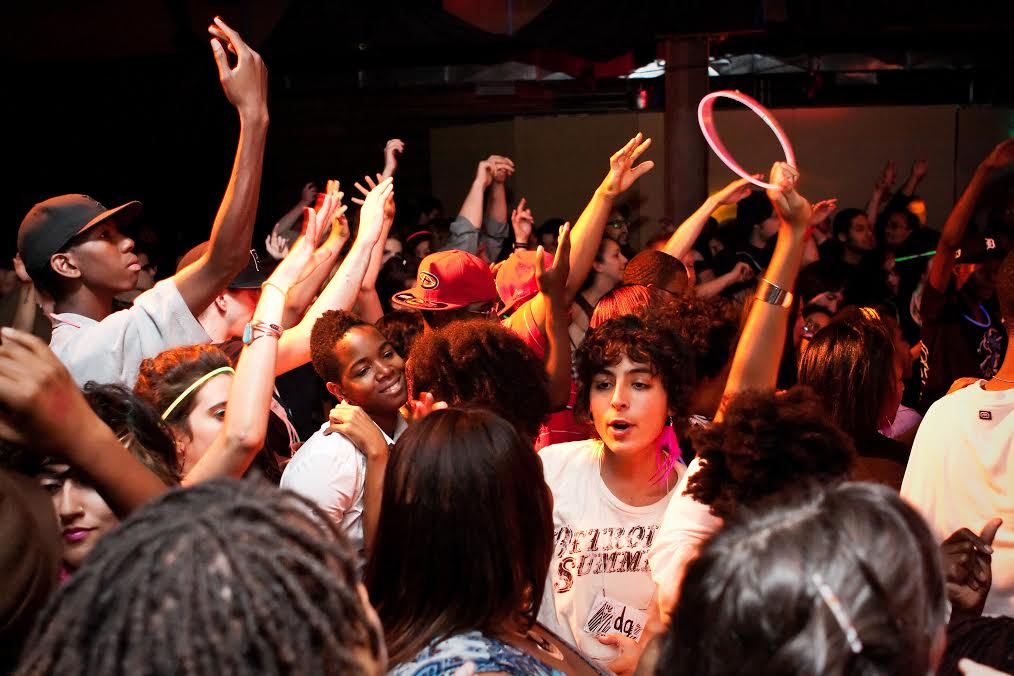
Reflecting on where the AMC has been over the last decade and where it’s going in the future, Medow remarks that an early mantra of the conference has already come to pass.
“One of the original sayings that drove this movement was ‘become the media’—don’t just criticize corporate media, develop your own independent media,” he says. “Today we are becoming media in online space, and I think that over the next 10 years, integration of communications media and everyday life is just going to get more intense.”
In other words, the AMC is here to stay. “The conversations that we’re facilitating are going to become even more relevant.”
Photos from 2016 by Nick Hagen. Photos from 2009 by Vanessa Miller.
